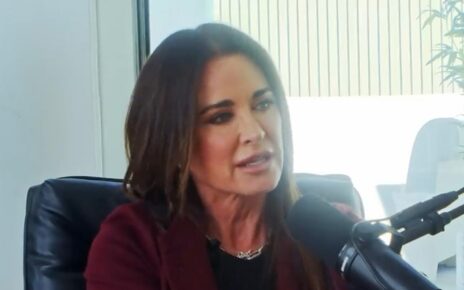Till stars Danielle Deadwyler and John Douglas Thompson and director Chinonye Chukwu kicked off Deadline’s Contenders Film: New York event with a discussion about the atmosphere they sought to cultivate on the film’s set.
“This wasn’t a solitary endeavor,” Deadwyler told the crowd at The Times Center. “Everything about this film was rooted in community care, in the same way that Mamie Till did. … It wasn’t about hiding away … We were all doing this together. Everybody was mourning with me, and joyful at the same time.”
The film recounts the events surrounding the abduction, torture and lynching of Emmett Till, a 14-year-old Black boy in Mississippi. Given that she plays Emmett’s mother, Mamie Till-Mobley, Deadwyler said she “talked to my therapist a lot before, during and after … yay, therapists!” On a more serious note, Chukwu said a therapist was on set every day during the shoot for anyone on the cast or crew who needed their services.
Related Story
Contenders Film: New York Underway With 'She Said', 'Till', 'The Good Nurse', 'RRR' Among Movies In Awards-Season Kickoff
The director also explained that her intent was to deliberately not sensationalize the inherent violence and hate of the episode, but instead ground the story in the resilience and struggle of Till-Mobley, on whose memoir Till is based. “I never saw it as a ‘trauma story,’” Chukwu said.
“When I think about my life as a Black woman, my joys, my community and love exist alongside the inherent pain and sadness that can come along with being a Black woman in this world,” she said. “So, that was how I approached this film. Let me also uplift the community and the love and the joy that exists in this story and in these people’s lives as well.”
Thompson, like his fellow panelists, said he had heard of Till’s story when he was in school, but only in a cursory way — “it was fairly loose, it was a name, a moniker,” he said. Thompson plays Moses Wright, whose testimony in the trial of his great-nephew’s accused killers was a brave peak of the civil rights era, with his decision to point the finger at a white man in open court at the expense of his safety and that of his family. It came, however, after he was perceived to have played a role in enabling Emmett’s kidnapping and death. The brutal dilemmas forced by the culture of the Jim Crow South, as embodied by Wright, becomes an important storyline in Till.
“If you look at it in the context of the time,” Thompson said, “race hatred, because of systemic racism confines the Black mind, the Black spirit and the Black body. There were only a few things that Moses could have done. They would have all ended up in a situation that would have been terrible.” By testifying against the white men who victimized Emmett, Wright finds “some redemption” at the end of the story.
Chukwu also noted that it is “a historical fact that there were at least three Black men who helped [two white men] abduct Emmett and bring him to the places where he was killed. … They’re also in a complicated situation.” As field hands employed by the perpetrators, she asked, “If they say no, what will it cost them?”
Check back Monday for the panel video.
Must Read Stories
‘The Electric State’ Crew Member Killed In Off-Set Car Crash; Production On Netflix Film Paused

‘Black Adam’ Chomping On Crunchyroll’s ‘One Piece Film Red’ For Top Spot

Core Cast Will Be Paid For Season 5 Despite HBO Cancelling Drama After Four Seasons

Season 5 Review: Queen’s Death, Historical Sleights Of Hand & Controversy

Read More About:
Source: Read Full Article


